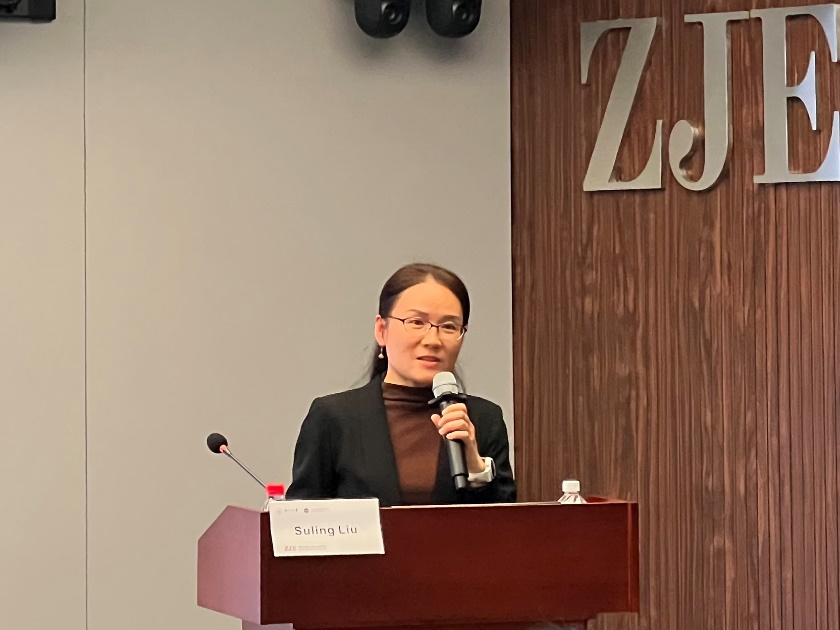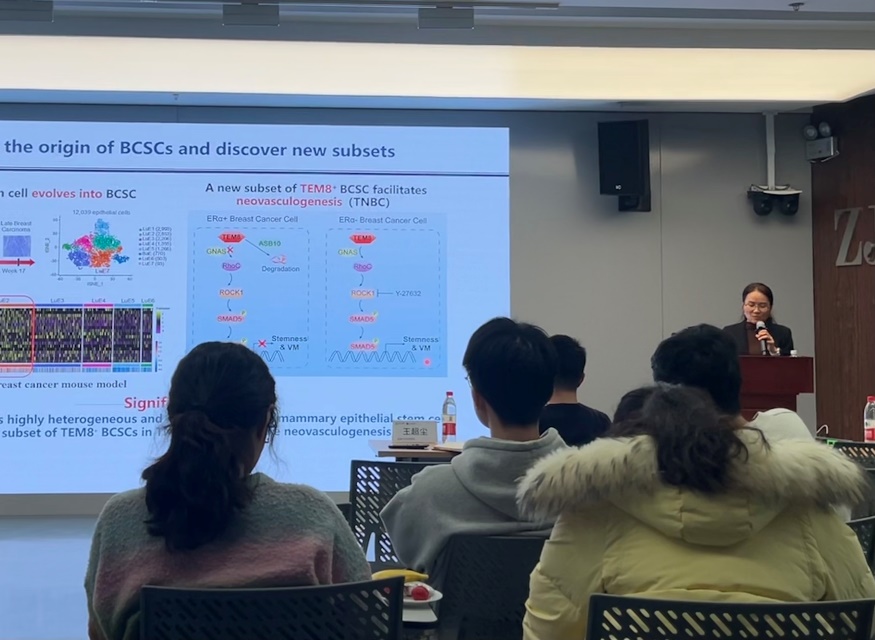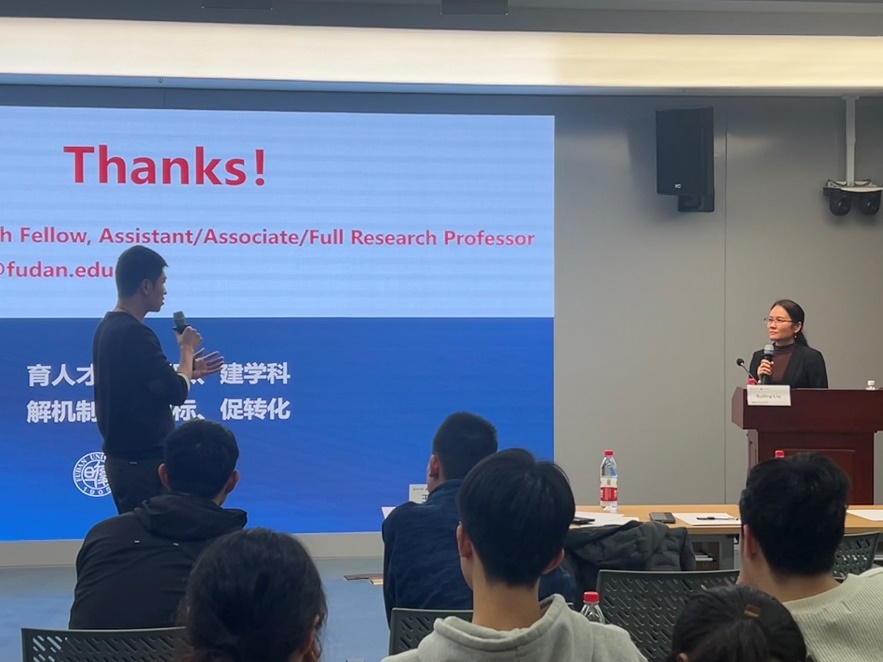On the afternoon of March 5, 2025, the Biomed-X Seminar No. 126 of Zhejiang University-University of Edinburgh Institute was successfully held at A203, ZJE Building. Invited by Dr. Chaochen Wang, Professor Suling Liu from the Institute of Biomedical Sciences at Fudan University delivered an academic report titled "Breast Cancer Stem Cells Promote Breast Cancer Drug Resistance and Metastasis."

Professor Liu began by highlighting that metastasis and drug resistance in breast cancer are the primary challenges in the clinical treatment of the disease. The root cause lies in the presence of a group of breast cancer stem cells with high tumorigenic potential within breast cancer tissues. Targeting these breast cancer stem cells could offer new strategies for clinical treatment. Professor Liu and her team have conducted in-depth research on the origin of breast cancer stem cells and the identification of new cellular subtypes. They discovered that two types of breast cancer stem cells—ALDH⁺CD24⁻CD44⁺ and TEM8⁺—play significant roles in promoting tumor drug resistance and angiogenesis, providing new insights for breast cancer treatment. When exploring the molecular regulatory mechanisms of breast cancer stem cells and their impact on self-renewal, drug resistance, and metastatic ability, the study showed that neutralizing IL1R2 antibodies and CREB inhibitors can effectively target breast cancer stem cells and inhibit their self-renewal. Additionally, RAD51, SOSTDC1, and CCL20 can significantly alter the sensitivity of breast cancer stem cells to chemotherapeutic drugs. This research offers new ideas for the targeted treatment of cancer stem cells and lays the foundation for the development of new anti-cancer drugs. The team also investigated the interaction between the tumor microenvironment (including immune cells and microbiota) and breast cancer stem cells and its impact on chemotherapy efficacy, providing new evidence for the development of personalized treatment strategies. In terms of clinical translation, the research team successfully established and improved a patient-derived xenograft (PDX) mouse model for breast cancer patients in China. This model provides strong support for the study of different breast cancer subtypes and the development of precision medicine. Professor Liu's research achievements offer new perspectives for the in-depth understanding of breast cancer stem cells and pave the way for future precision treatment strategies and the development of new drugs.

During the event, faculty and students actively engaged in discussions, demonstrating their open-minded approach to academic exploration and critical thinking about research questions. Professor Liu patiently and thoroughly answered every question, deepening the understanding and insights of participants in this field.

As the 126th session of the Biomed-X Seminar series, this report underscores the institute's commitment to fostering high-level academic exchanges through its academic brand building efforts. The institute will continue to provide a platform for faculty and students to engage in cutting-edge scientific discussions.







